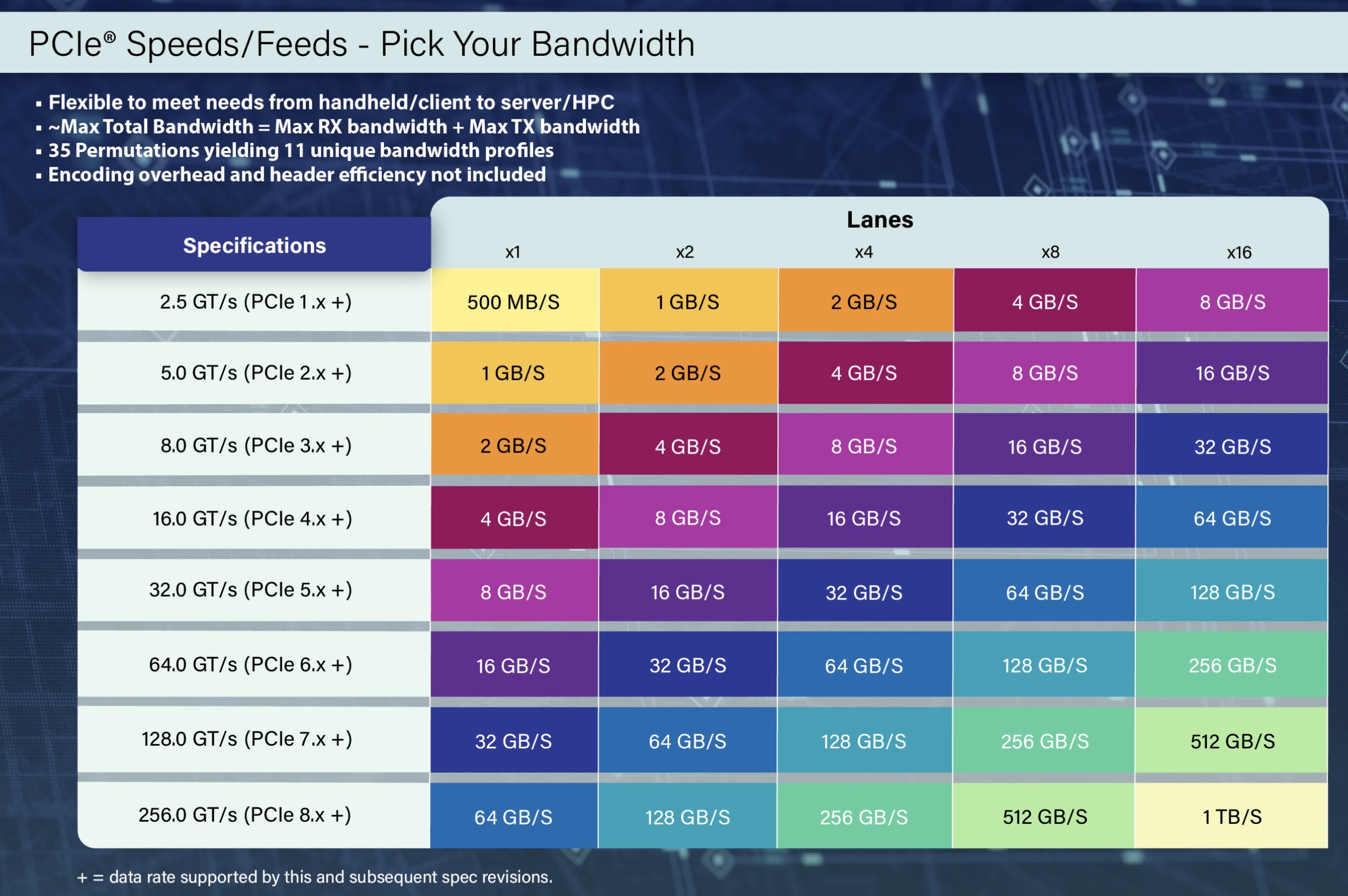PCIe 8.0: Because Clearly, Physics Hasn’t Suffered Enough
Hello everyone. Gather around, because apparently the PCI-SIG, that shadowy cabal of high-speed slot wizards, has decided that our current warp speeds just aren’t ludicrous enough. Yes, we’ve barely gotten to grips with PCIe Gen5, PCIe Gen6 is still warming up on the bench, and now-boom-PCIe 8.0 is announced, targeting a 2028 release. Because when you’re playing the tech arms race game, why not just skip balancing entirely and crank the difficulty slider straight to “Nightmare” mode?
Another Day, Another Doubling
The headline pitch is simple: PCIe 8.0 will double throughput over PCIe 7.0. We’re talking 1TB/s on a single x16 link. That’s right, one terabyte per second. That’s the kind of number that sounds like marketing fluff until you realise it’s true-and then you start wondering why your SSD still takes three minutes to move your Steam library to a new drive. It’s like having a Ferrari engine strapped to a wooden cart pulled by a donkey named Windows Update.
They’ve even given us a chart showing I/O bandwidth doubling every three years. Which is adorable, until you remember doubling bandwidth doesn’t double your happiness-especially when system bottlenecks are waiting around the corner like goblins in a dungeon ready to gank your frames.
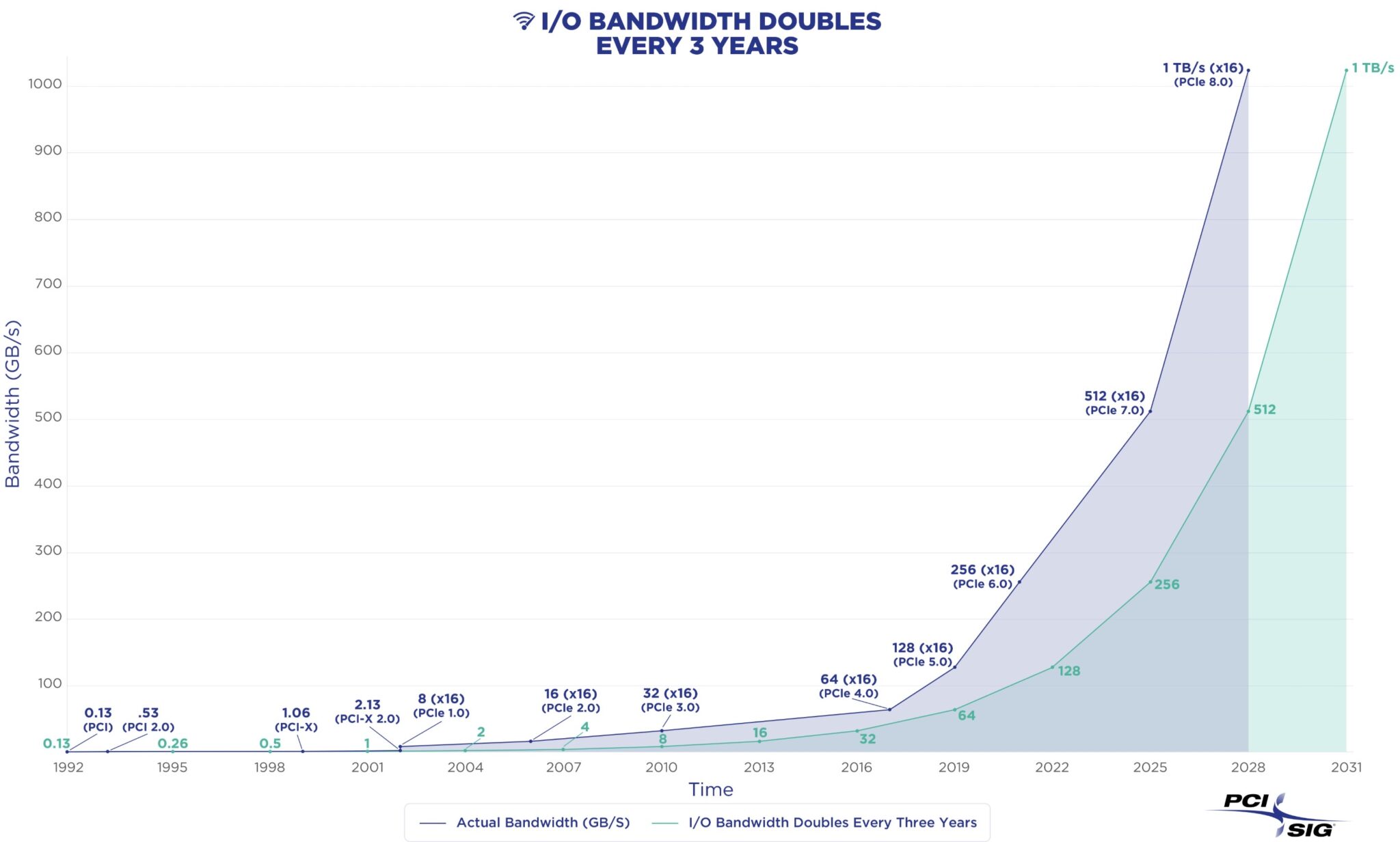
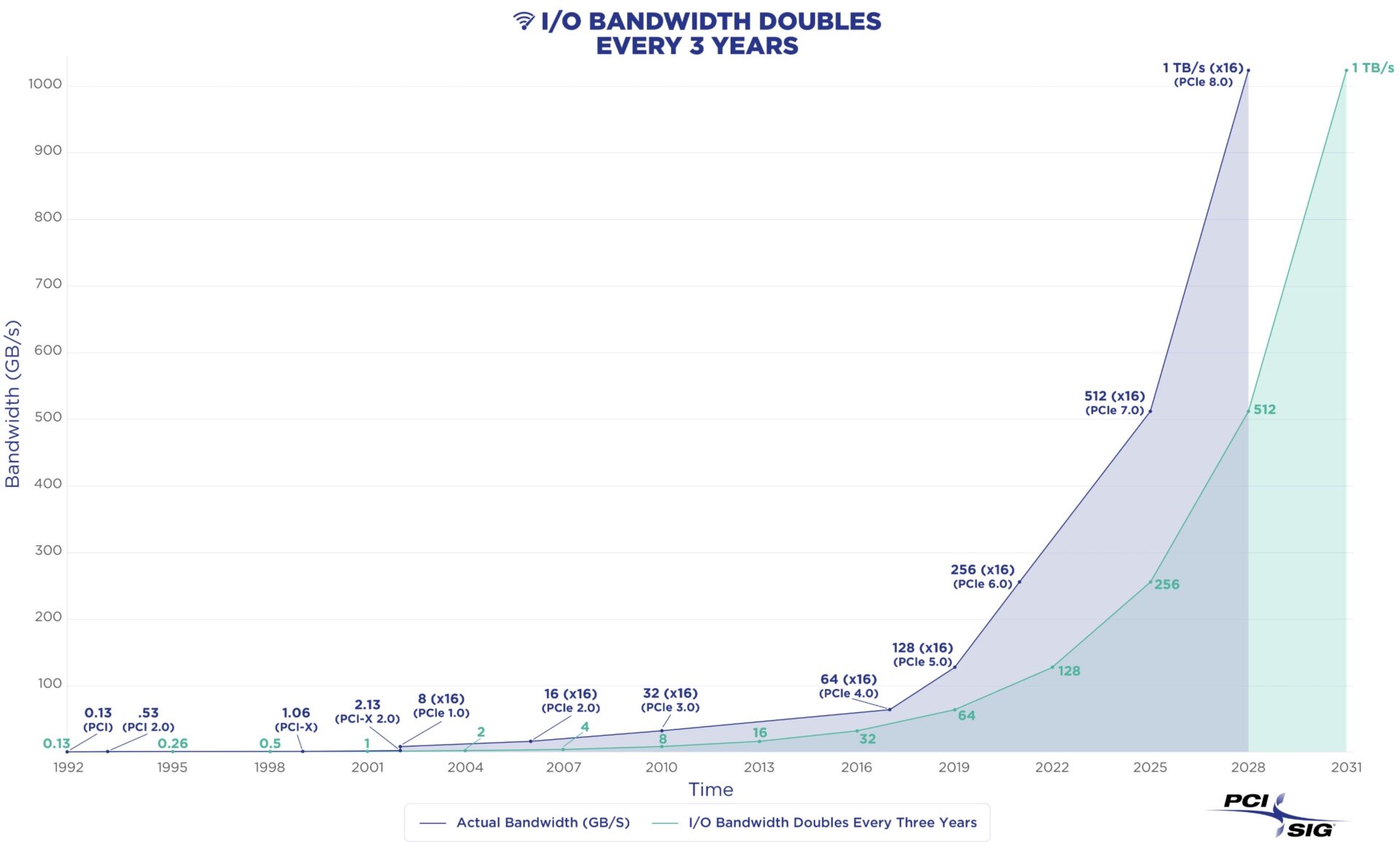
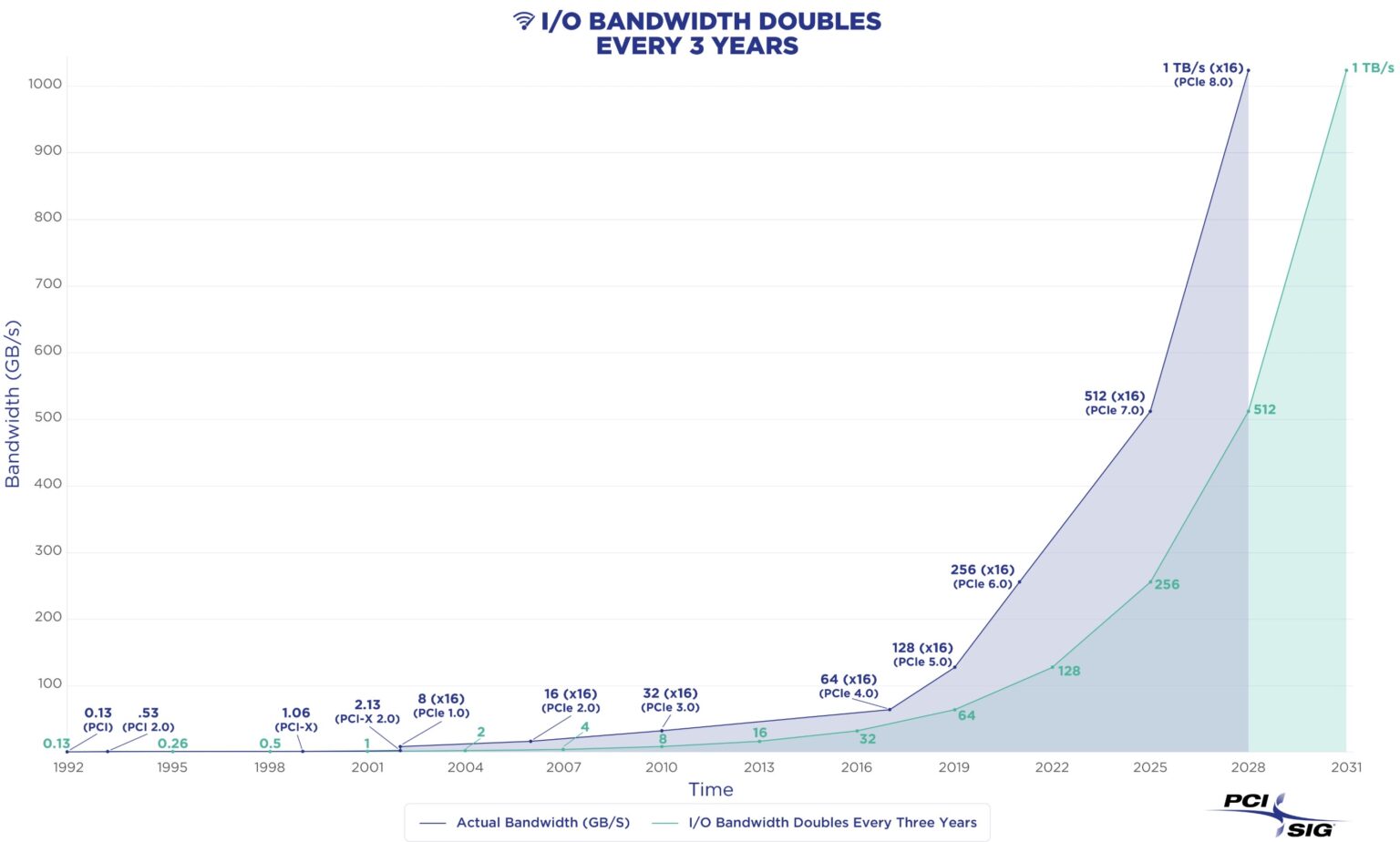
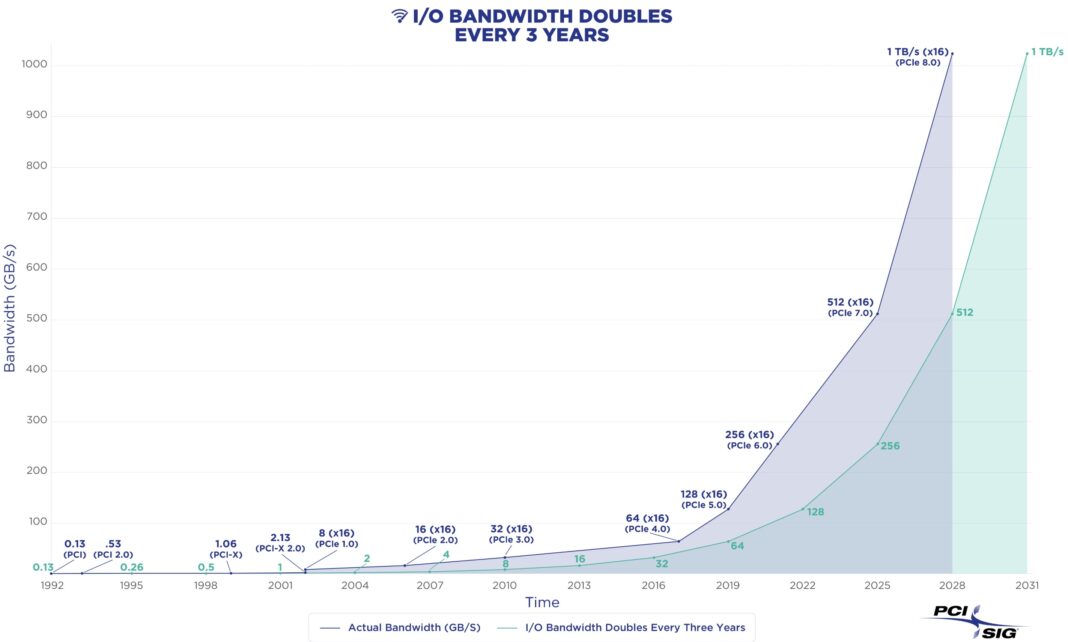
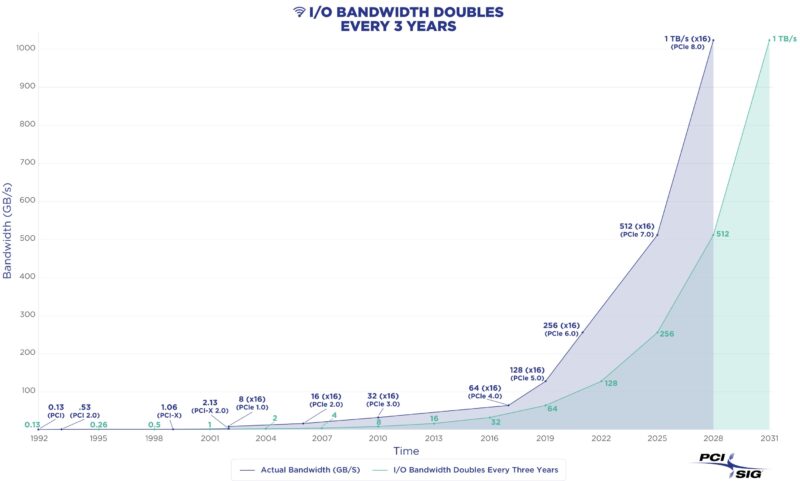
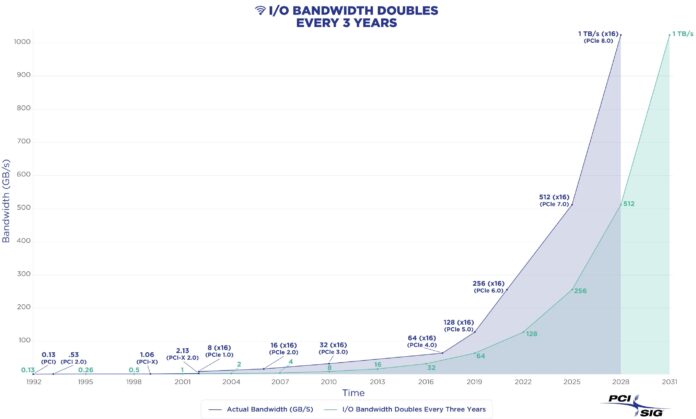
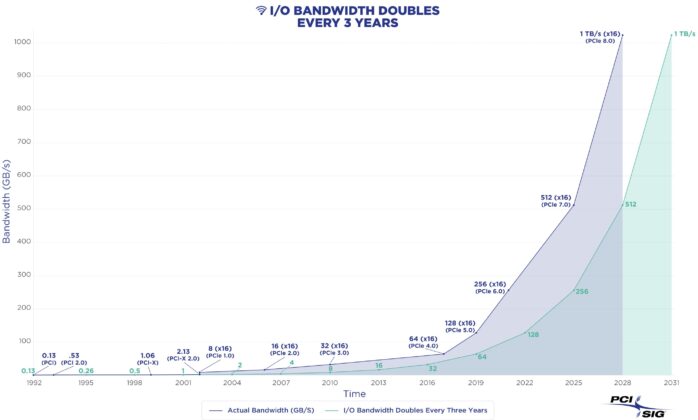
The “System Perspective”
This isn’t just a bigger pipe for your data; the PCI-SIG wants you to remember that the number of controllers and lanes is increasing too. Which means that from a whole-system standpoint, your total I/O bandwidth jumps even faster than the base link speed charts make it look. It’s basically the loot table equivalent of rolling three legendary drops when you were only expecting one.
But here’s the rub, and the conspiracy theory fan in me starts rubbing his hands-maybe all this speed increase isn’t just to serve you glorious 8K VR cat videos. Maybe it’s about AI. The article itself gives the game away: the AI build-out is devouring data faster than a rogue process devours your RAM. If every AI accelerator can funnel oceans of data through PCIe like a black hole slurping stars, well… let’s just say Skynet’s PCIe lanes will be very well provisioned by 2030.
Charts, Tables, and Tech Porn
The bandwidth-by-generation table is catnip for the benchmark faithful. You can trace the PCIe lineage from the humble origins to the forthcoming monster that is Gen8. It’s neat, sure, but it also highlights how laughably short the “stable life” of each standard is these days. By the time Gen7 rolls into your gaming rig, Gen8 will already be looming like an endgame boss. And just like an MMO gear treadmill, there’s no end in sight-just more grind, more expense, and diminishing returns on what the average gamer will actually notice.
1TB/s: Because your RGB lighting clearly isn’t moving data fast enough.
Reality Check
So, let’s put it together. PCIe 8.0 is lightning fast. It will make AI systems, high-end compute nodes, and big data analysis happy campers. In the short term, mainstream consumers will barely scratch its surface. Sure, a few token workstation boards will pop up boasting the new spec, but unless you’re running arrays of next-gen GPUs or exotic NVMe RAID for scientific research, you’ll mostly be buying into bragging rights with not much practical uplift-for a price tag that could buy you a used car.
Final Diagnosis
As a medical professional in the field of tech hypochondria, I diagnose this as an acute case of Spec Sheet Inflation Syndrome. Symptoms include drooling over theoretical bandwidth numbers and ignoring the fact your actual performance is throttled elsewhere. Recommended treatment? A healthy dose of skepticism, a GPU upgrade when you actually need one, and maybe wait until the Gen7 to Gen8 transition shakes out before jumping in. Unless, of course, you enjoy being a beta tester with deep pockets and a high pain tolerance.
Verdict? Technically impressive, strategically predictable, consumer relevance questionable. And that, ladies and gentlemen, is entirely my opinion.
Article source: PCIe 8.0 announced by the PCI-Sig will double throughput again, https://www.servethehome.com/pcie-8-0-announced-by-the-pci-sig-will-double-throughput-again/

